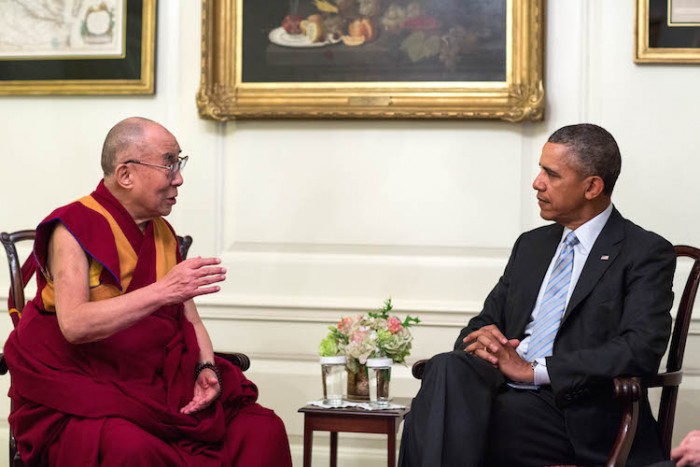Mindfulness can help you become both a better leader, and a better employee.
Mindfulness practice can lead to the development of Emotional Intelligence, the ability to be aware of your own and others emotions, and the ability to use this information to guide your thinking and actions.
These skills are essential to surviving in today’s unpredictable world. In the Principles of Psychology in 1890, William James observed that “mindful attention has the potential to radically transform how a person relates to their inner and outer worlds.”
About 2,500 years before that, the Buddha taught that mindfulness meditation was a way to solve human suffering. So what is now being proven in both contemplative scientific research and in practice in many companies including Aetna, Keurig Green Mountain, Intel, Google, and General Mills, is that this ancient practice of choosing where to place one’s attention has very modern applications.
Most of us are very stressed out, and many of the problems that cause our stress don’t call for routine responses, but require new ways of thinking. Dr. Jeremy Hunter of the Drucker School of Management points out that the “intensity and demands of change” at this point in time are “particularly complex and severe.” Mindfulness, and the related Emotional Intelligence competencies of self-awareness, self-regulation, motivation, empathy and social skills, enables us to remain calm, in control, able to inspire and make good decisions—even in the midst of the difficulties causing us to experience stress.
In other words, as Einstein famously said, “We can’t solve problems using the same kind of thinking we used when we created them.” Mindfulness helps us develop the ability to adapt our thinking and relate to what is actually happening rather than what has happened previously.
Bill George, Professor of Management at Harvard Business School, writes that:
“When you are mindful, you’re aware of your presence and the ways you impact other people…while recognizing the implications of your actions for the longer term. And that prevents you from slipping into a life that pulls you away from your values.”
In this article he is exploring how one can stay grounded in one’s principles, connected to a longer term vision, and motivated to be of benefit to make a positive difference in the course of leading and doing one’s work. He recommends the daily introspection of meditation as a way to clarify inner purpose and at the same time “nurture passion for your work and compassion for others.”
The leadership development program he developed at Harvard is called Authentic Leadership. This is a prescription for leadership training based on inner development that differs significantly from previous models that frankly did not work all that well.
Nick Petrie, of the Center for Creative Leadership, identified four reasons that other forms of leadership development were less successful. These are: “too much time spent on delivering content, and not on developing the leaders; information was not connected to real life daily challenges; leaders went to these trainings in isolation from their teams; and the programs were events without ongoing follow up to solidify new thinking and behaviors into new habits.”
In contrast, training in mindfulness and emotional intelligence is incredibly practical, portable, applicable to challenges and continuous. To simplify and summarize what may be its key benefit, as we deepen our ability to stay present, open and curious about our world, we become better listeners.
In my experience, this skill may be the summation, and most important benefit of mindfulness practice. When I am able to focus on the other person, and not on the story in my head, I have the opportunity to genuinely connect with not only the words being said, but to feel the unsaid as well.
By observing body language, tone of voice, and by being a receptive listener who is genuinely interested, I have been able to have conversations that might have gone quite differently. So often, an employee, colleague or family member just wants us to listen—not judge, not give advice. Or maybe we need to have that “difficult conversation” to end a relationship, let someone go at work, or give a negative work review.
Where do we find the skill have these kinds of exchanges?
By training in being present and open to whatever arises with an open mind and heart. Training in mindfulness and emotional intelligence is a great place to start.
Relephant:
Doing Good while Doing Well: Right Livelihood Meets Shambhala Vision.
~
Author: Gayle Van Gils
Editor: Travis May
Photo: Magazine Cover, Wikipedia
 Share on bsky
Share on bsky


Read 0 comments and reply